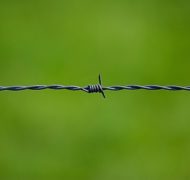Ahab and Jezebel Murder Naboth to Get His Property (1 Kings 21)
Bible Commentary / Produced by TOW Project
King Ahab abuses his power further when he begins to covet the vineyard of his neighbor, Naboth. Ahab offers a fair price for the vineyard, but Naboth regards the land as an ancestral inheritance and says he has no interest in selling at any price. Ahab dejectedly accepts this appropriate limitation of his power, but his wife Jezebel spurs him to tyranny. “Do you now govern Israel?” she taunts (1 Kings 21:7). If the king has no appetite for abuse of power, the queen does. She pays two scoundrels to bring a false charge of blasphemy and treason against Naboth, and he is quickly sentenced to death and stoned by the elders of the city. We are left to wonder why the elders acted so quickly, without even conducting a proper trial. Were they complicit with the king? Under his control, afraid of standing up to him? In any case, with Naboth out of the way, Ahab takes possession of the vineyard for himself.
Abuse of power, including land grabs as blatant as Ahab’s, continue today, as a glance at nearly any daily newspaper will confirm. And as in Ahab’s time, abuse of power requires the complicity of others who would rather tolerate injustice, even murder, than risk their own safety for the sake of their neighbors. Only Elijah, the man of God, dares to oppose Ahab (1 Kings 21:17-24). Although his protests can do nothing to help Naboth, Elijah’s opposition does curb Ahab’s abuse of power, and no further abuses are recorded in Kings prior to Ahab’s death. More often than we might expect, principled opposition by a small group or even a single individual can restrain the abuse of power. Otherwise, why would leaders go to so much trouble to hide their misdeeds? What do you estimate is the likelihood that you will become aware of at least one misuse of power in your working life? How are you preparing yourself to respond if you do?

.jpg)







.jpg)


